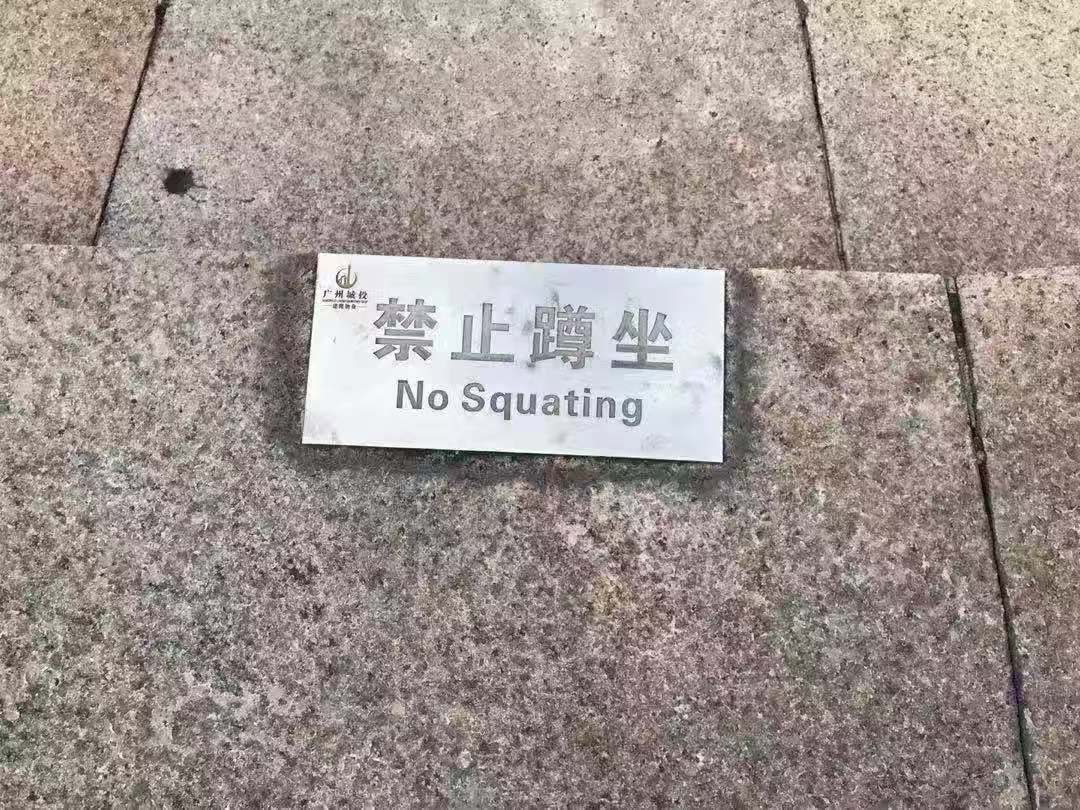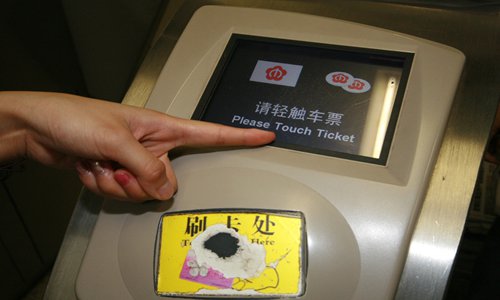
From the People’s Daily app
And this is Story in the Story
China is continuing its efforts to rid the country of so-c alled ‘Chinglish’ to help improve its image overseas.
Odd English translations on public signs have been a common sight in China for decades.
At the end of last year, China’s central government introduced a new national standard for the use of English language on public signs. The standard sets guidelines for English translations in a range of areas, including transport, health care, education and financial services.
The standard bans words and expressions that are rare, discriminatory or hurtful, and that could damage China’s international profile, as well as that of other countries.
Direct translations, which have often been blamed for irregularities in the past, are also on the ‘do not use’ list.
Today’s Story in the Story will look at why experts are so adamant about the need to get rid of Chinglish on public signs.

A public sign with a misspelled English word used incorrectly was spotted by experts checking public signs in English at Huacheng Square in Guangzhou, South China's Guangdong province, Nov 5, 2018. (Photo: China Daily)
Language experts are urging local governments to pay more attention to translations on public signs, because they are important elements in shaping the image of a city in the eyes of foreigners.
Shi Yanhua, former director of the translation office of the Ministry of Foreign Affairs, said some local governments have not invested enough money and resources into improving the translation of public signs, leading to some ridiculous translations.
They should strengthen the regulation on translation and any new signs should first be approved by relevant government authorities before being posted in public, she said at a sub-forum of the 2018 annual conference of the Translators Association of China.
Different cities have different translations for the same type of sign, she said - for example, ring road in Beijing, belt road in Shanghai and boulevard in Shenzhen mean the same thing and should be consistent.
Chen Mingming, executive vice-president of the translator’s association, said signs in places frequently visited by foreigners, including airports, subways, hotels and scenic spots, should be priorities, and there should be no translation mistakes in these signs.
Not all signs need to be translated, he said. "Public signs with unique expressions using Chinese characteristics need no translation," Chen said.
Liu Liu, head of the translation office of the foreign affairs office of Guangzhou, Guangdong province, said similar incidents have occurred in that city, with many people thinking it doesn't matter what the English sign means as long as there is an English translation.

Beijing government calls for more people to get involved in correcting errors in public sign translations. (Photo: Global Times)
Zhang Qian, deputy director of the foreign affairs office of the Beijing municipal government, said many people have not realized the importance of sign translation.
The office once found a cigarette and liquor store on Beijing's Wangfujing street with a sign that said "name cigarette, name liquor", when the translation should have been "brand name cigarettes and liquor," she said.
"We told the owner of the store to change the sign, but he told us he would not spend money on such a trivial matter. He would only change it if the office agreed to pay for the new sign."
The office is also calling on locals and foreigners working, living or visiting Beijing to help fix translation errors printed on public signs in the city.
The 2018 Online Correction of Erroneous Public Sign Translations was launched in March. The online correction campaign aims to help standardize English public signs, promote the building of an international exchange center and prepare for big international events, including the 2022 Winter Olympic Games in Beijing.
Israeli linguistics expert Bernard Spolsky said when done correctly, public signs in English are a good way to encourage tourists in China.
He also believes the push to improve English in general complements China’s acknowledgement of globalization.
But not everyone is happy about the focus on getting translations right.
University of Southern California’s US-China Institute adviser Ray Kwong is one of those people.
He said bad translations on signage, menus and the like have been part of China’s charm since he first visited 30 years ago.
(Produced by Nancy Yan Xu, Brian Lowe, Lance Crayon and Grace Xinyi Song. Music by: bensound.com. Text from China Daily and Global Times.)


